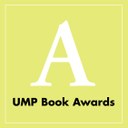When one's trash is another's . . . house cat
Each November 1, the Chicago Transit Authority turns on its largely ineffectual heat lamps. Come the first cold snap, pigeons gather to huddle in the scant pools of warmth, heads tucked under wings, apparently confident no one will swoop them up for mass barbecues. Chicagoans of the human sort stand shivering around them, cast out of the heat but loath to disturb their feathered fellow city dwellers.
"Flying Rats," Andrew D. Blechman's essay in the anthology Trash Animals, is about our fraught relationship with urban pigeons. The birds drop corrosive poop, damaging statues and buildings, and have been the bane of mayors in many cities. Yet few creatures incite as much affection from city people. Blechman talks to New Yorkers who spend money and time passing out birdseed to street pigeons. In their enthusiasm, birders go so far as to decode racing bands and return lost racing pigeons to their owners, perhaps fondly imagining the reunions that follow.
That's where fantasy meets reality. Faced with the return of what is, in effect, a defective bird, and seeing nothing but money down the beak, a pigeon owner will usually just break its neck.
By: Yasmin Nair
Story Date: 2013-11-18T00:00:00



